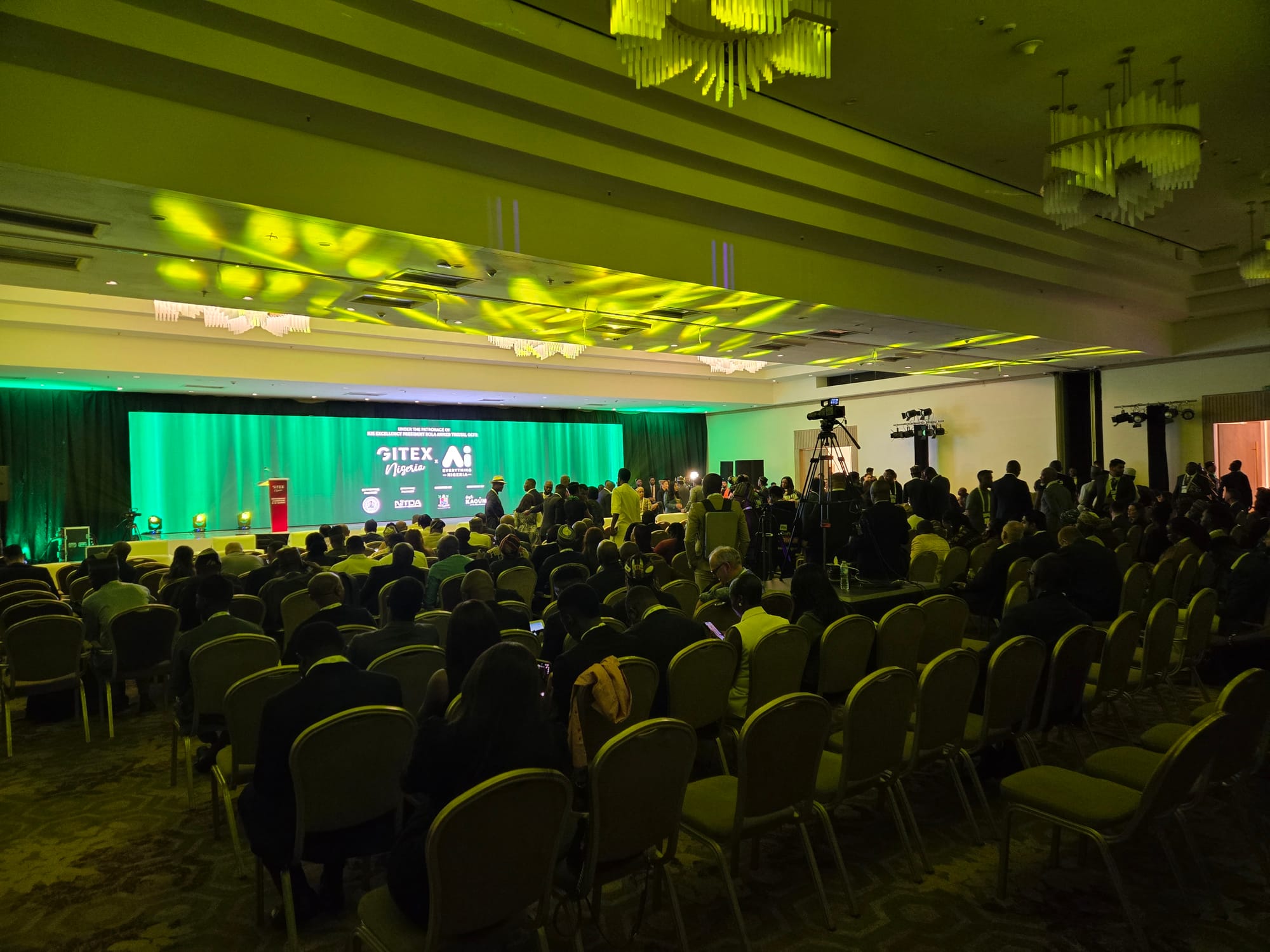Nigeria’s Minister of Communications, Innovation and Digital Economy, Bosun Tijani, has called for a unified approach to artificial intelligence (AI), warning that fragmentation could leave the continent behind in the emerging AI-driven global economy.
Speaking during a high-level panel on the opening day of GITEX Nigeria 2025 in Abuja, dedicated to AI and digital governance, Tijani urged collaboration on AI infrastructure, policies, and talent development at both local and continental levels.
“We need to build a shared infrastructure in Africa. AI cannot be an afterthought—it must be central to our conversation,” he said.
To underline the stakes, Tijani pointed to agriculture, citing lessons from his recent visit to Brazil, where AI is already boosting yields through optimized fertilizer and herbicide application. He emphasized that, where Nigeria only produces just 2.5 tonnes of maize per hectare, Brazil reaches 12 tonnes with AI-driven tools.
“Countries that are already ahead will move even faster, and those that are still catching up will find it even more difficult to catch up” he noted.
The minister stressed that similar technologies could transform other sectors, such as logistics, through better risk assessment, and education, through personalized learning systems. But without bold investment, he warned, Africa risks ceding competitiveness.

Tijani also emphasized the need to balance national sovereignty with continental collaboration. He argued that while strategies may differ according to national contexts, African countries must find common ground to build collective strength. He, however, noted that while we need to partner on the AI front, our strategies do not have to be identical.
“If you are going to be sovereign, we need to start talking about unifying ourselves. We cannot afford fragmentation.
Africa’s youthful demographics—average age 16.9 years—were cited as a key advantage. Tijani argued that AI will inevitably displace some jobs but will also create new ones, making future-ready skills essential. He reiterated that we must invest in computing power, connectivity, and algorithms, which are very expensive and currently underfunded.
Other African leaders echoed Tijani’s message.
Kashifu Inuwa Abdullahi, Director General of the National Information Technology Development Agency (NITDA), described AI as the fourth industrial revolution, following steam and mechanization, electricity, and the internet. He called for public-private partnerships bringing together hyperscalers, data center operators, and telecoms to provide the continent with much-needed infrastructure.
We cannot build it in silos; we need shared AI infrastructure.
Pedro Nuno Alves Fernandes Lopes, Secretary of State for Digital Economy of Cabo Verde, pressed the urgency of structural cooperation:
“We need a structure or strategy for collaboration. Before thinking about the ecosystem, we need to think about unity.”
The conversation extended to funding, with a dedicated panel exploring investment models for AI infrastructure. These included innovation bonds, blended finance, public-private partnerships, and the role of development finance institutions (DFIs).
Abraham Durosawo, Vice President at the Nigeria Sovereign Investment Authority, said the agency is mobilizing local capital, including sovereign funds, into AI-related infrastructure projects to ensure sustainability and ownership.
Uyoyo Zino Edosio, Chief Innovation and ICT Officer at the African Development Bank (AfDB), stressed that the bank is already deploying tools to de-risk investment in Africa. She explained that AfDB is raising patient capital through African bonds, acting as a limited partner (LP) in funds of funds, and helping crowd in more private capital for the wider economy. She added that the bank is willing to extend these strategies specifically to AI development, ensuring the sector benefits from the same mechanisms that have successfully attracted investment in other industries.
Representatives from TLcom Capital, the World Bank, and the International Finance Corporation (IFC)emphasized that collaboration between the public and private sectors is essential.
During the event, Mathew Verghis, World Bank Country Director, reinforced the central message: “AI for Africa, by Africa, with Africa at the center.”
Across sessions at GITEX Africa 2025, speakers converged on a shared warning: Africa must avoid a fragmented approach to AI. Building shared infrastructure, forging public-private partnerships, harmonizing strategies, and nurturing local talent were all identified as urgent steps to ensure the continent does not miss the opportunities of the AI revolution.




